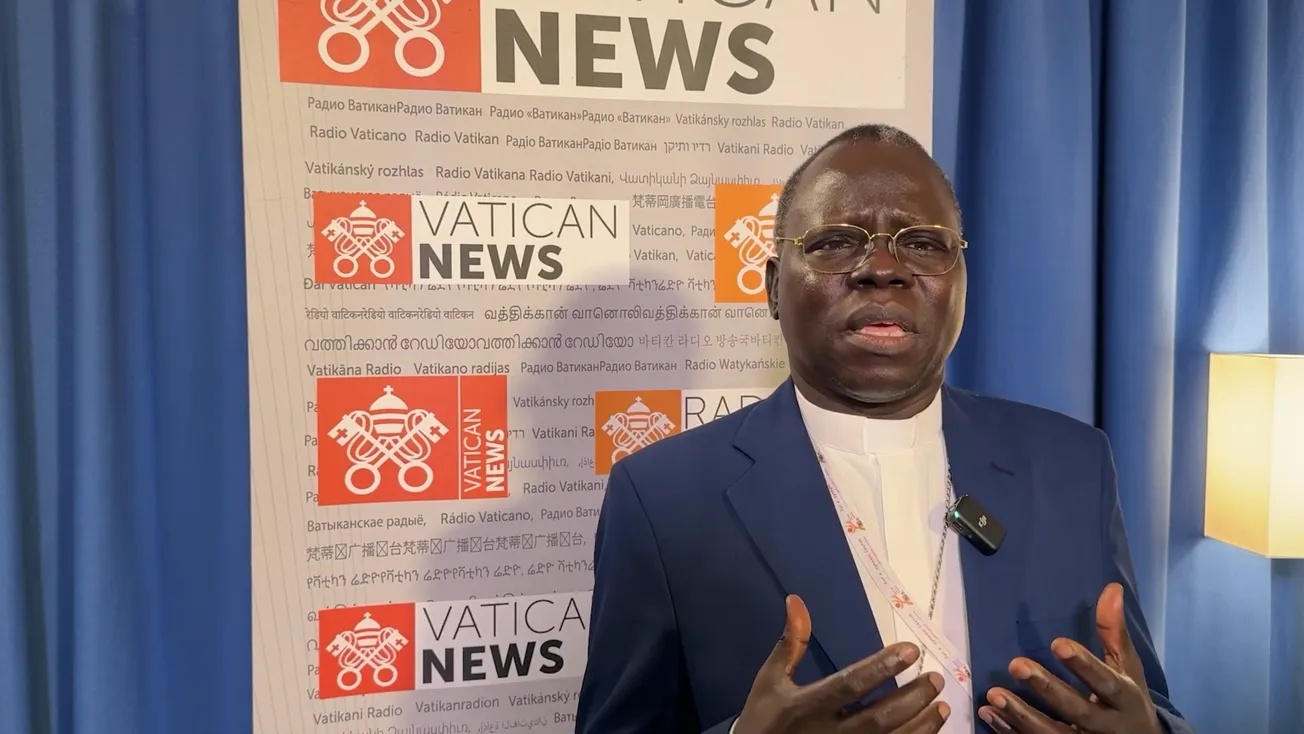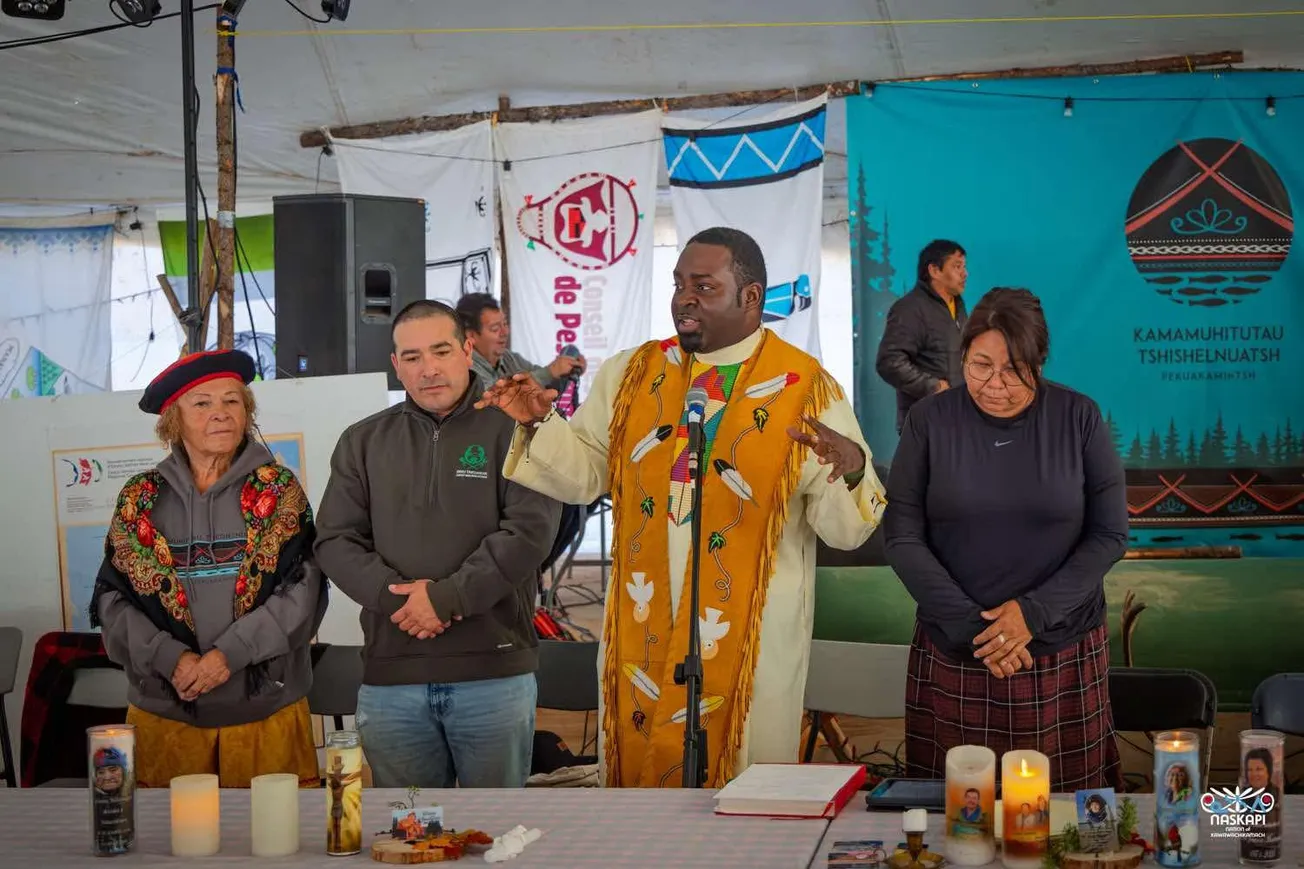VATICAN CITY — A South Sudanese archbishop spoke this week in Rome on his region’s experience with synodality, including recovery from a devastating war and nascent independence.
Cardinal Stephen Ameyu Martin Mulla of Juba, appointed to his archdiocese in 2020, was present at a press briefing on Friday during the Synod on Synodality, to which he is the sole delegate from Sudan or South Sudan.
Cristiane Murray, the Holy See’s vice press director, introduced Mulla at the briefing as one whose country “is going through a terrible situation,” apparently confusing his country with that of Sudan, which has been embroiled since last year in a third civil war.
The Vatican’s official delegates list for the current session of the synod, which runs through Oct. 27, likewise lists the 60-year-old prelate under the heading of “Sudan.”
Mulla himself, speaking on the situation in the region as a whole, noted that the two countries’ fates are somewhat intertwined, perhaps indicated by the fact that they have shared a single bishops’ conference since South Sudan’s independence in 2011.
“We have tried our level best to continue to help our people, the poor people of South Sudan and Sudan,” he noted, “but it was important that people need to understand that the wars that we had before was a war [wherein] people wanted to be free… But now we realize that there are still outlining issues that we have to resolve together.”
Mulla spoke of the efforts of the Holy See to mediate peace in 2018 between leaders in South Sudan, where a plurality of the population—including the president, Salva Kiir Mayardit—is Catholic. While the countries ended major hostilities and formed a unity government that year, Mulla says the various sides in the conflict have not yet achieved lasting peace.
“The country is still instable and we continue to insist, as bishops, that this revitalized peace agreement should be implemented,” said Mulla, who was created a cardinal in 2023 by Pope Francis following the pontiff’s visit to the country earlier that year.
“There is corruption, there is mismanagement of the resources. It is a country that came out and had the potential of being a good and prosperous country, but because of mismanagement, a lot of problems have happened, and so many people are suffering.”
He also spoke of the need for increased attention to environmental concerns, as a wave of ecological crises batter the Northeast Africa region, including food insecurity, a water crisis, and desertification. South Sudan, which is located in the Nile River Basin, also faces devastating floods on a regular basis.
“A lot of cities have been submerged, and many people are suffering as we talk,” said Mulla, who spoke of tent cities that have lasted years following the displacement of thousands of residents.
The cardinal also noted the Church’s growth in South Sudan, which now has eight dioceses. He contrasted this with the deteriorating situation in Sudan, where the ongoing war has displaced Archbishop Michael Didi Adgum Mangoria of Khartoum and destroyed a number of churches.
Hardly meaning the comparison as a slight, Mulla spoke of Sudan as the “motherly country” of his own, with the need for deep listening extending across borders and bishops to help improve the situation in both nations and beyond.
“Synodality—going together—should be the way for us to resolve our own problems,” he said.
“Problems that affect Sudan or South Sudan or Colombia or other parts of Mediterranean countries are our problems. No one should see it as a problem of the people of Colombia only, or Sudan. We are related, interrelated, and dialogue has to happen.”
Although he is the only synod delegate from Sudan or South Sudan, Mulla says he hopes the ideals of synodality will help his country’s bishops work with politicians to resolve the “social and political problems” they face.
“That is one thing that the dialogue, this Synod on Synodality, is emphasizing, that we are not leaders in order to rule people. We are leaders to serve people.”
Nate Tinner-Williams is co-founder and editor of Black Catholic Messenger.










